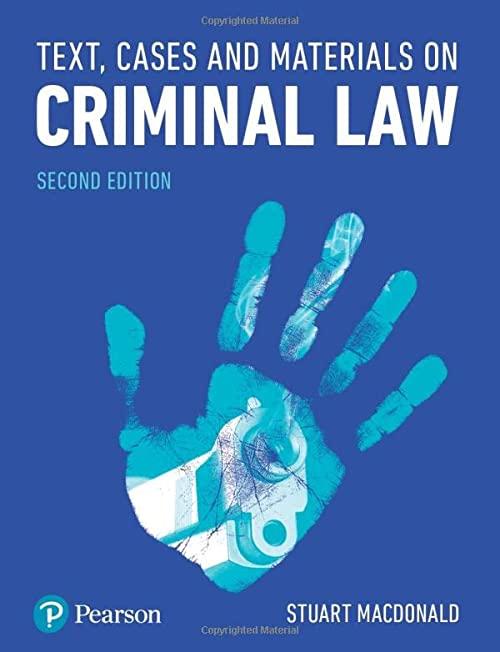Question
reply to this post: The specific situations that require Miranda rights be used are when someone is in custody or interrogation. Custody is defined by
reply to this post:
The specific situations that require Miranda rights be used are when someone is in custody or interrogation. Custody is defined by these specific elements:
- Is the person a suspect in the case as opposed to a witness or victim.
- Did the person voluntarily come to speak to the police as opposed to being brought in for questioning?
- Is the person free to leave at any point?
Elements that define interrogation are:
- Police are actively asking the suspect questions that could elicit incriminating response.
Suspects can waive their Miranda rights when the situation calls for it. A suspect might be in a situation where cooperation may be more desirable than sitting silent and waive their Miranda rights to do so. Another situation could involve an element of urgency/emergency where cooperation with the police might prevent crisis or harm unto others.
I believe there are times to waive Miranda rights. Think about situations where someone is forced to rob a bank or gas station out of fear a third party might harm their loved one if they don't comply with their demands. Giving themselves up and waiving their Miranda rights could give police the information they need to help them deal with that third party and protect their loved one.
Step by Step Solution
There are 3 Steps involved in it
Step: 1

Get Instant Access to Expert-Tailored Solutions
See step-by-step solutions with expert insights and AI powered tools for academic success
Step: 2

Step: 3

Ace Your Homework with AI
Get the answers you need in no time with our AI-driven, step-by-step assistance
Get Started


